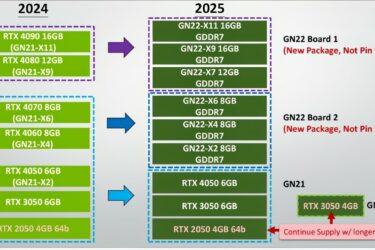The new Snapdragon X Elite is a HUGE leap: Here’s a Comparison of X Elite VS 8cx Gen3, 8cx Gen2, and 8cx Gen1
The Snapdragon X-series isn’t Qualcomm’s first foray into laptop SoCs. Back when the initial announcement for Windows on ARM was made, they revealed the Snapdragon 8cx compute platform, which was made to give a viable chip option for manufacturers who wanted to experiment with ARM-based Windows devices. Three generations later, the 8cx Gen 3 wasn’t able to be a viable competitor to Intel and AMD, while not even scratching Apple and its M-series SoCs.
But right now, Windows on Arm is able to run more apps, either natively or thanks to translation layers. Qualcomm also stepped up massively, releasing their X-series of new SoCs, including the X Plus and X Elite, which promise to level up to Apple M-series levels in terms of performance and efficiency. Today we’re here to do something a bit different though, as we’ve already compared the X Elite among its different versions as well as against the M-series SoC.
Today we’re here to see how much of a jump there is between the X Elite and the previous 8cx platforms across its different generations.
Shoutout to @lafaiel on Twitter for scouring Geekbench for results.
| Device | Chip | Single-Core | vs Prev-Gen | Multi-Core | vs Prev-Gen |
| Samsung Galaxy Book S | Snapdragon 8cx Gen1 | 983 | – | 3418 | – |
| Samsung Galaxy Book Go 5G | Snapdragon 8cx Gen2 | 1109 | +13% | 3797 | +11% |
| Samsung Galaxy Book2 Pro 360 | Snapdragon 8cx Gen3 | 1546 | +39% | 6006 | +58% |
| Samsung Galaxy Book4 Edge | Snapdragon X Elite | 2889 | +87% | 15417 | +157% |
You can see that Qualcomm has made significant improvements over the few 8cx generations, however, the X-Elite is on a whole other playing field when it comes to both Single-core and Multi-core performance.
All laptops with Qualcomm Snapdragon X Elite (X1E-84-100):
All laptops with Qualcomm Snapdragon X Elite (X1E-80-100):
All laptops with Qualcomm Snapdragon X Elite (X1E-78-100):
















